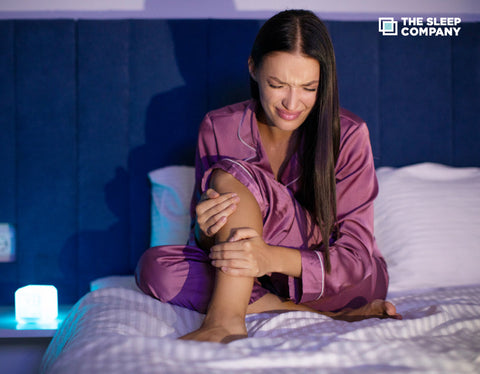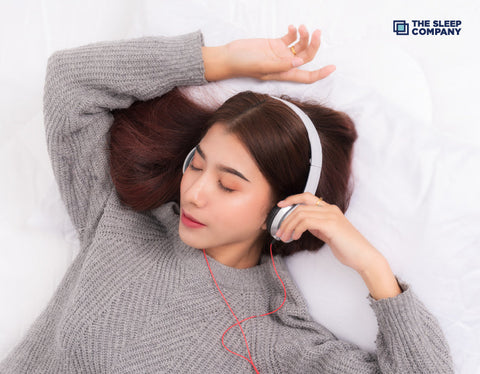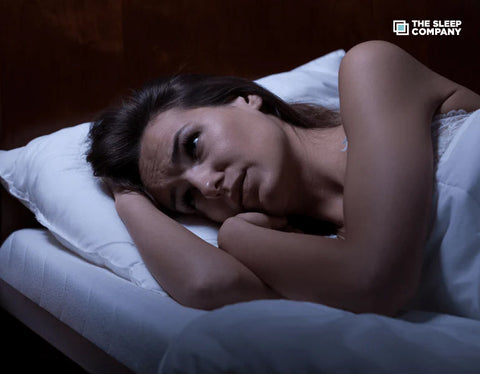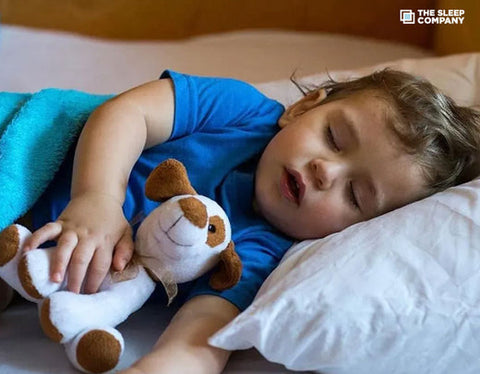My Cart

10 Reasons Why You Get Sleepy After Eating

Are you someone who craves a nap after a stomach-filling lunch? Or maybe uncontrollable yawns become an issue after a heavy meal?
If this sounds like you, you may be experiencing something known as postprandial somnolence or post-meal drowsiness. It's normal because your body goes through several processes after you have eaten. However, it's not always feasible, especially if you have an important chore at hand. But don't worry. There are ways to control and curb it.
In today's article, we not only bring you the top 10 reasons why you feel sleepy after eating but also tell you about the steps to minimize it.
Top 10 Reasons Why You Feel Sleepy After Eating
Before we understand how to control drowsiness that occurs after a meal, let’s unpack the common reasons why you feel sleepy after eating.

1. Disturbed or Poor Quality Sleep
If you tend to enjoy a glass or two of wine or any other alcoholic beverage, for that matter, chances are you end up feeling sleepy after eating. However, this isn't ideal because post-alcoholic sleep may not be of high quality. For instance, you may wake up frequently to visit the bathroom.
Also, when you don't enjoy quality sleep at night, you may experience intense post-meal drowsiness. This is why you must always strive to achieve a good night's rest.
So, it’s important to consume a healthy meal before bed and invest in a proper sleep environment, such as a cozy mattress, pillows, blankets, etc.
2. Insulin and Blood Sugar Levels
You must have especially experienced this after festivities or get-togethers where you consume a large meal in the afternoon. While the process is delicious, you immediately end up feeling sleepy after eating.
This is because your body releases insulin to help process the sugar in your bloodstream. So, high-carb food or sugary meals can cause a spike in blood sugar. Then, there is a sudden drop, which induces drowsiness.
This fluctuation can affect your energy levels and also make you feel tired.
The solution? Opt for balanced meals with complex carbs, proteins, and healthy fats. This helps regulate blood sugar levels and prevents sudden dips that can lead to drowsiness.
3. Hormonal Changes
Do you remember your grandma or even your mother telling you to have a glass of milk before bed to help you sleep better? It is because food items influence how tired or energetic you feel. Milk is one such item. It produces tryptophan, which can be useful in helping you fall asleep.
In the same way, when you consume food rich in carbohydrates, it can increase levels of serotonin and melatonin. They are the hormones that promote sleepiness. This is why you must be mindful of what you consume. A balanced meal is always an ideal choice.
4. Meal Size
It is simple. When you enjoy a large meal, it can make you feel sleepy because it requires more energy to digest.
When you eat a big meal, your body diverts blood to the digestive system. Therefore, less quantity remains for other functions. So, you experience a drop in energy and increased drowsiness.
However, when you eat smaller, more frequent meals throughout the day, it can help maintain energy levels and prevent the sluggish feeling that often follows a large meal.
5. What You Eat!
Have you heard the popular saying, you are what you eat? Well, there's some truth to it. Your food choices can influence sleep and energy. For instance, foods rich in tryptophan, like turkey and dairy products, can also increase sleepiness by boosting serotonin levels.
While they make an ideal dinner choice, you need balanced meals with proteins, healthy fats, and complex carbs, especially in the afternoon to maintain steady energy levels and reduce post-meal sleepiness.
6. Iron Deficiency
Low iron levels can lead to restless legs syndrome (RLS), a condition where you feel an uncomfortable urge to move your legs, especially at night. This constant movement can disrupt your sleep and prevent you from getting a good night's sleep.
As a result, you may feel very tired during the day and may end up feeling sleepy after eating. Therefore, taking care of your deficiency can improve your sleep quality and reduce excessive sleepiness.
7. Hydration
Your body needs almost 2 liters of water every day. When you don't consume enough, it can make you feel tired and sluggish after eating.
This is because dehydration causes your body to struggle to process and digest food as it should.
That's why keep yourself hydrated. You can also gulp a glass of water before and after your meals.
8. Circadian Rhythm
Your body's internal clock, or circadian rhythm, is responsible for sleep and affects your sleepiness throughout the day.
After eating, especially if it’s a large meal, your body may align with its natural dip in alertness that typically occurs in the early afternoon.
This dip, known as the postprandial dip, is a normal part of the circadian rhythm and can make you feel more tired after eating.
9. Chronotype
Your chronotype, which is your natural sleep-wake cycle, is responsible for how you feel throughout the day. Some people are naturally more alert in the morning, while others feel more awake in the afternoon or evening.
So, if your chronotype tends to induce drowsiness after eating, you must identify this and align your meal times when your natural energy is high.
10. Preservatives
Preservatives are mostly bad for you. However, certain preservatives and additives in processed foods also impact your energy levels and can make you feel sleepy.
When you consume these chemicals, they can disrupt your digestive system or affect your body's ability to process food properly. That's why it is always ideal to opt for fresh, whole foods without artificial additives.

How To Prevent Sleepiness After Eating?
Here are a few tips that can help you avoid feeling sleepy after eating.
- Eat balanced meals. For instance, include a mix of proteins, healthy fats, and complex carbohydrates to maintain steady energy levels.
- Opt for smaller, more frequent meals to avoid overloading your digestive system.
- Drink water throughout the day and with meals to support digestion and prevent fatigue.
- Limit high-sugar foods that can cause a spike and crash in blood sugar levels.
- Take a short walk after eating to boost circulation and reduce drowsiness.
- Avoid heavy meals close to bedtime, as they can disrupt sleep.
- Give your body time to digest by eating slowly and chewing thoroughly.
- Ensure you are getting enough rest by investing in a supportive mattress and pillows to reduce overall daytime sleepiness.
The Final Word
Slight drowsiness after a meal is normal. However, with our above tips, you can control them so they never hamper your productivity. That said, if you experience excessive or uncontrollable drowsiness, make sure you speak with your healthcare provider.
Remember, poor-quality sleep can also be the culprit. Here, a quality mattress like the Smart Ortho Pro Mattress by The Sleep Company can come to your rescue. The breathable SmartGrid Technology offers a cool night's rest and orthopedic support for a pain-free shuteye.
It's time to give your slumber The Sleep Company upgrade!
FAQs
It's generally okay to sleep after eating, but it’s better to wait a couple of hours before lying down. Sleeping right after a meal can cause indigestion, heartburn, and disrupt your sleep. If you feel tired, try to take a light walk instead of sleeping immediately.
Yes, diabetics may feel sleepy after eating, especially if their blood sugar levels spike after a meal. This can happen if they consume a lot of carbohydrates or sugary foods.
A full stomach can make you sleepy because your body directs more blood to your digestive system to help process the food. This shift in blood flow can reduce the amount of oxygen and nutrients available to your brain, which causes feelings of fatigue.
Turkey, dairy products, rice, bananas, nuts, etc., which are rich in tryptophan, an amino acid, can make you feel sleepy.
Most people feel drowsy within 30 minutes to 1 hour after a meal. The timing depends on the size and type of food you eat—larger, carb-heavy meals often trigger quicker and stronger sleepiness compared to lighter, balanced meals.
Occasional sleepiness after meals is normal and usually not harmful. However, if it happens excessively or affects your daily routine, it could be a sign of an underlying health condition that needs medical attention.





























































